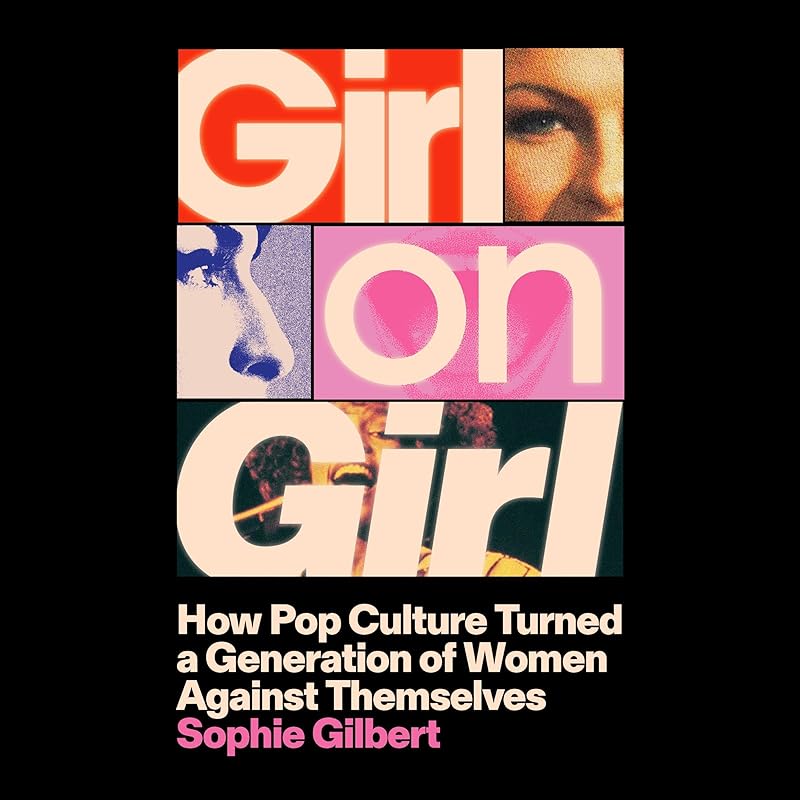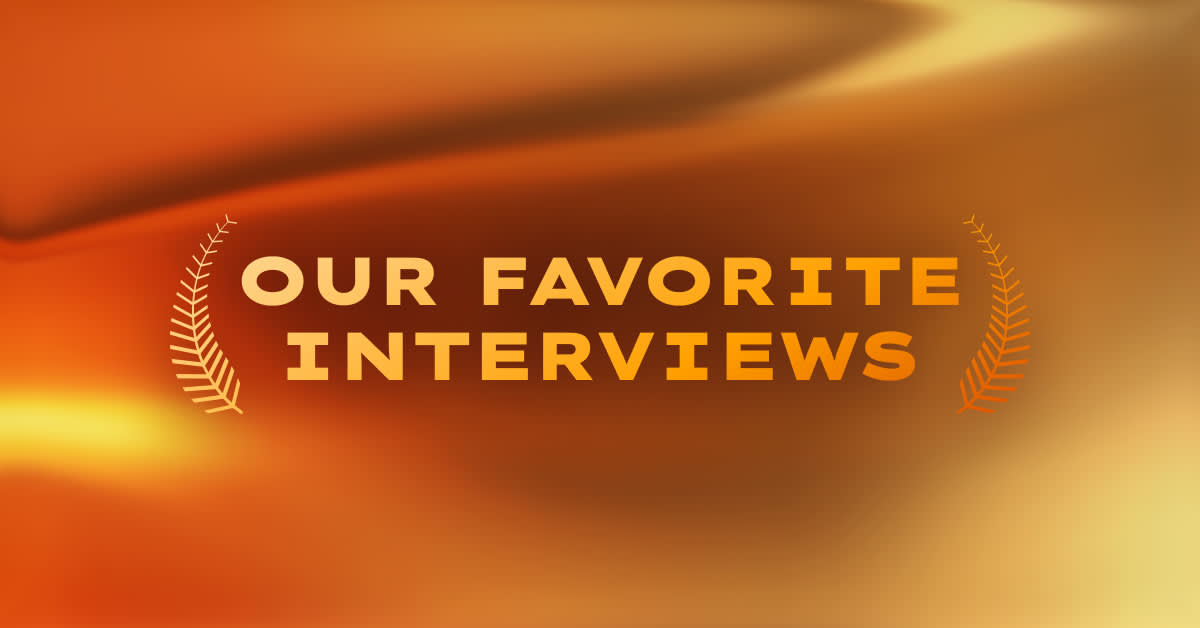Is there a better way to take the world’s pulse than with nonfiction? These 2025 releases took on humanity’s most pressing concerns, from the headline-worthy (AI, climate change, the Israel-Palestine conflict) to topics we now see with new eyes, like the importance of the color blue in Black history, how 1990s and Y2K-era pop culture betrayed feminism, and the shocking prevalence of tuberculosis around the world. Each is a standout feat of storytelling, performance, and production that more than earns its place on this list of the best nonfiction of 2025.
Save this list to your Library Collections, or explore more from the Best of 2025.
After listening to Imani Perry’s impeccable discourse on the significance of this color in Black history, beginning in Africa and with dyed indigo cloth, blue will never be the same for me. When we talk about the “blues,” we’re talking about a particular note that, when added to the American music we know, becomes something else, rich in soul, and it’s not always sad. From the murky waters of the slave trade, one looked above and saw blue skies. There was hope up there. Enslaved women demanded blue cloth from their enslavers, even while living under such horrific conditions. Coretta Scott King’s wedding dress was blue. The connections seem endless, and it’s all brought together beautifully through Perry’s storytelling and narration. —Yvonne D.
The thing about this one is, once you listen to it, there is no going back to seeing the world as you did before. One Day, Everyone Will Have Been Against This is how it often goes, isn’t it? Empathy is conditional and not reserved for everyone, and only when the dust has settled and the safety and convenience of hindsight has kicked in are we allowed to challenge the narrative we’ve been told. As beautifully written and performed as it is, Omar El Akkad’s nonfiction debut is an uncomfortable confrontation with what Western media has shaken out of our collective humanity—and a call to action to reclaim it. —Aaron S.
What’s your p(doom)? Chances are, after listening to this, your reckoning of the probability of a worst-case outcome in the development of artificial superintelligence just shot up. Even if you don’t share their breathtakingly unambiguous position, authors Eliezer Yudkowsky and Nate Soares are seasoned AI safety experts—they are the founder and president, respectively, of the Machine Intelligence Research Institute; Yudkowsky also founded the influential rationalist blog Less Wrong. Together, they lay out a clear argument that eviscerates any hope that humanity might solve the alignment problem ahead of the global race to develop AGI, or that we'll make great pets if the bots do take over. As apocalyptic nonfiction and a series of engaging thought experiments, it’s a terrifying yet entertaining listen, especially in the unpauseable performance of Rafe Beckley. —Kat J.
Writer and Academy Award-nominated filmmaker Julian Brave NoiseCat opens We Survived the Night with a harrowing account of a night watchman rescuing a wailing infant from the flames of an incinerator at a Canadian residential school. That child was NoiseCat’s father. So begins a resonant exploration of intergenerational trauma and the violence of colonialism that weaves past and present, fact and folklore, to staggering effect. Equally beautiful and gutting, We Survived the Night resists genre categorization, instead blending memoir, nonfiction, and Indigenous mythology to craft both a feat of personal storytelling and an essential document of Native history and culture. It’s all the more stirring in audio; NoiseCat himself narrates, a gift that enlivens the heart of this ode to community, language, family, and survival. —Alanna M.
If you’re looking for your next favorite podcast, look no further than The Unusual Suspects. Featuring unfiltered conversations with trailblazing business leaders, sports legends, and creative powerhouses at the top of their game, each episode goes far beyond the surface-level stories of success we’re all used to hearing. With award-winning producer Kenya Barris and bestselling author Malcolm Gladwell at the helm, listeners get unparalleled access to the insights and success stories of each guest, resulting in nine conversations that feel like master classes in ambition, creativity, and perseverance. —Michael C.
It’s no small feat to publish a full body of research from behind bars, making this powerful audiobook by John J. Lennon—an accomplished yet incarcerated journalist who, yes, killed a man in 2001—even more impressive. The book offers fresh perspective from an unconventional set of storytellers. Between Will Damron’s skillful narration and the author’s note recorded by Lennon from the inside, The Tragedy of True Crime excels in audio, all while exploring the evolving ethics of a genre that has skyrocketed in popularity in recent decades, even among incarcerated individuals themselves. —Haley H.
We’re all susceptible to confirmation biases—particularly in the social media age—and depending on where you look, you can make just about anyone the bogeyman responsible for all of society’s modern ills. But Ezra Klein and Derek Thompson argue (quite convincingly in their narration) that today’s problems are actually the consequences of yesterday’s fixes. Governments are collapsing under the weight of their own complexity, and if we’re going to meet challenges like the housing crisis, a broken health care system, and climate change, it may be time to rethink some of the well-meaning laws and systems that are stifling the path to solutions. —AS
Perfect for fans of true crime and reality television alike, Not a Very Good Murderer is a standout audio documentary from Pulitzer Prize-winning journalist Ronan Farrow. It unravels the stranger-than-fiction story of a former beauty queen at the center of a killer conspiracy. But the alleged murder plot of the title is only one of the mysteries, secrets, and scandals that swirl around socialite Cece Doane. Farrow’s singular voice and inimitable perspective guide listeners through every turn of this deftly reported character study, and his ability to vet, research, and compellingly unfold a narrative makes for an absorbing work of investigative storytelling. —AM
Just shy of 100 years after Wall Street’s most notorious crash, Andrew Ross Sorkin swoops in to remind us of what humanity continually forgets: that those who don’t know history are doomed to repeat it. With Trump’s tariffs and increasing worries about an AI bubble, this racing yarn about the market free fall that set off the Great Depression feels terrifically timely. And terrifically talented is its author, whose landmark Too Big to Fail set a new standard in financial nonfiction. With 1929, Sorkin applies his investigative and storytelling chops to thrilling effect, while also taking the reins as narrator for the audiobook. I loved listening to Sorkin’s clear and emotionally resonant performance, as did so many Audible listeners, whose glowing reviews are an early testament to the lasting significance of this work. —KJ
During the height of the COVID pandemic, Scott Z. Burns’s film Contagion saw a resurgence in popularity for obvious reasons: People were watching to make sense of their current reality. So when he was tasked with writing a sequel, his challenge was wondering how to replicate that relevance. In comes arguably the most relevant thing affecting artists and content creators today: generative AI. With a “team” of AI writers, actors, producers, and even a facsimile of Burns’s own foul-mouthed late talent agent, Burns documents his bizarre yet illuminating experiment. The bots sometimes get it right, often get it wrong, occasionally terrify, and always take things in unexpected directions, making for a fascinating case study into what happens when we involve this technology in our artistic endeavors. —Sam D.
I’m old enough to remember both the empowered “liberation” of Madonna’s cone breasts in 1990 and the instant shattering of Lilith Fair-style feminism when Britney Spears showed up in that schoolgirl uniform at the end of the decade. In this bracing listen, Pulitzer finalist Sophie Gilbert digs into the myriad cultural phenomena—pop music, reality TV, tabloids, fashion magazines—that objectified, sexualized, and infantilized women, then sold it back to them as “girl power.” The real eye-opener, though (at least for the more innocent among us) is just how much of this playbook was co-opted wholesale from porn. Narrated with Gilbert’s British polish, Girl on Girl is startlingly timely in the age of tradwives and the endless outrage cycle of discourse around today’s female celebrities. —KJ
Released in time for Sir David Attenborough’s 99th birthday and showcasing the broadcaster’s iconic voice alongside Colin Butfield’s equally engaging narration, this listen shines as a significant addition to the repertoire of a true audio legend. Ocean spans the seven seas—plus a century’s worth of personal insights—to examine the effects of climate change on marine ecosystems. Ultimately, it immerses listeners in the nostalgic comfort of a nature documentary, with a splash of optimism for future conservation efforts, making it a perfect vessel for exploring urgent global issues without spiraling into an eddy of anxiety. —HH
Early in his second work of nonfiction, beloved YA author John Green writes, “My wife, Sarah, often jokes that in my mind everything is about tuberculosis, and tuberculosis is about everything.” By the time this thoughtful, thoroughly researched history concludes, it’s difficult to argue otherwise. Green examines the myriad ways in which TB has impacted history, society, and culture, centering the human toll that has disproportionately affected those living in poverty, and focusing on one young patient in particular. This being John Green, the story is ultimately not one of despair but of hope and compassion in the face of suffering. Green’s narration lends authority and humanity to the story of a curable ailment that, through inequity and injustice, holds fast as the world’s deadliest infectious disease. —AM
Whether or not you’ve heard the shocking story of the Zorg, a Dutch ship that gained infamy when more than 100 sick slaves were thrown overboard by their merciless captors in 1781, you’ll find its dark past brilliantly illuminated by Siddharth Kara’s new book. The Pulitzer-nominated author of Cobalt Red brings his impressive research and narrative skills to reveal the complex dynamics of the West African slave trade and a nightmarish voyage in which dysentery, mismanagement, and greed all contributed to a horrific massacre that helped ignite the abolition movement. But what really keeps listeners sailing through this turbulent maritime history is the steady stewardship of narrator Dion Graham, who brings drama, humanity, and clarity to a tale that demands all three. —KJ
Organized by body part (and the many ways they can be replaced), Mary Roach’s latest is a fascinating and accessible look at regenerative care and body modification. Roach’s knack for mixing humor, technical detail, and personal anecdotes is on full display. As is always the case with her audiobooks, it’s made even more special by the fact that it’s performed by Roach herself. From a look back at centuries of evolution in prosthetics to a look ahead to the 3D-printed organs of our future, Roach has managed to write another scientific deep-dive that is hard to put down. There’s always something to learn from Mary Roach. —MC



















